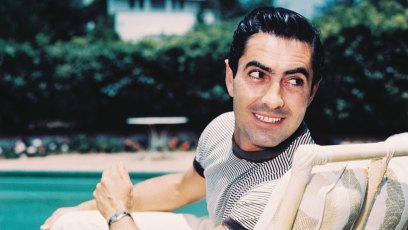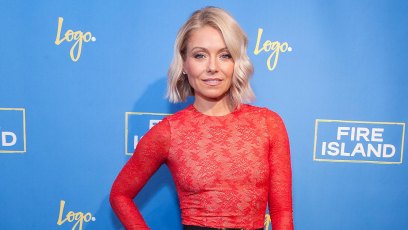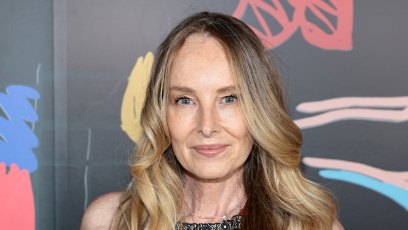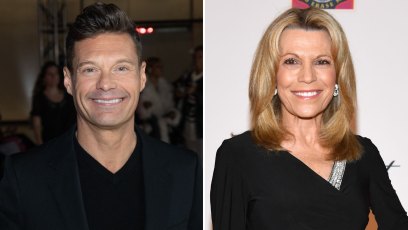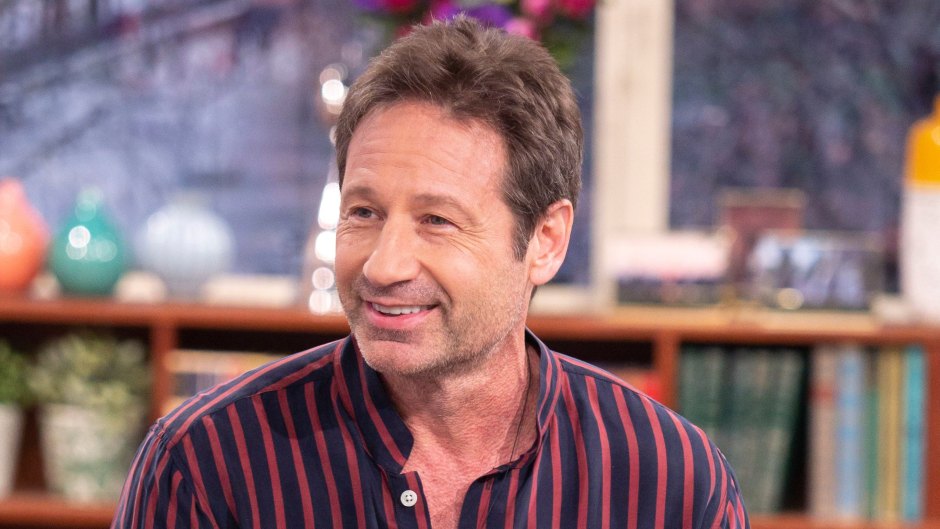
S Meddle/ITV/Shutterstock
David Duchovny Reveals His Favorite Role of His Iconic Acting Career: Is It Mulder on ‘The X-Files’?
David Duchovny was working on his doctoral thesis and headed toward a career in academia when a friend turned him on to acting. “I had a summer free in between years of graduate school. A buddy of mine had become an actor. It was not something anybody I ever knew did. Nobody. I am from New York, but just didn’t know any actors,” David tells Closer. “I was headed down a very rational, discursive road. I needed to get in touch with my emotions, and acting was my savior. I fell in love with it.”
In addition to his starring roles on the television series The X-Files and Californication, the two-time Golden Globe winner is a New York Times bestselling author and a singer-songwriter. His novella, The Reservoir, was recently released. “Writing is the one place in all my art that I get to do it all by myself,” David, 61, explained during a chat with Closer at the Los Angeles Times Book Festival.
What came first: Your desire to write or act or sing?
“Well, not sing. I mean, I’ve joked about it before, but it’s true. I really don’t have natural pitch or a singing voice. I had a couple of very negative experiences when I opened my mouth to sing at my church school. So I never thought about singing, period. But I think I would have identified myself as a writer always because I’m not particularly outgoing or obviously energetic in a way that people think of actors.”
A lot of actors have very big personalities.
“Yes, and I wasn’t the kind of person where somebody’s like, ‘You seem like an actor, you should act.’ It was more like, ‘Hey, you’re really laid-back and mellow. You seem to not have any problems at all.’ I was like, ‘I got a lot of problems, I’m just not exhibiting them for you.’”
What started you writing?
“I thought I had a novel in me, I thought I could write. But I was kind of consumed with the show business aspect, so the writing was taking the form of screenplays. Then, at some point, being frustrated, not getting financing for what would have been independent films, I just decided I would like to see that story told. So why don’t I just tell the story? Why don’t I just write it? That’s how that started.”
Tell us about the genesis of your new novella, The Reservoir. Did you set out to write a thriller?
“No. I set out to write a story about a guy who thinks he’s got something to say that he hasn’t said yet. That kind of lures him into a delusional relationship with a woman across the park. It’s about a guy who wants to be indispensable again, like he was when he was a young father. He was looking for the feeling of being needed or being special. It leads him into these delusions.”
Is the character very similar to you?
“He is similar to me in the feeling that a father has for any child, but maybe for a daughter especially, just the protectiveness and the fear. I once took my daughter out into water too deep, when she was too young. [My character] remembers taking his daughter out, how irresponsible it is that we take charge of these innocent lives and we put them in harm’s way. That became like the pivotal moment of forgiveness.”
You have two children, West and Kyd. Do either of them share your love of storytelling?
“My daughter West is acting. She majored in English in college, just like I did. I’m always scared of anybody I love getting into acting. Especially a child of mine. But I think she has a toughness to her that can help her survive. My son is a naturally gifted, funny guy. He’s a storyteller in that way but has shown no interest in acting.”
What kind of a dad are you?
“Well, I can only think of my shortcomings as a dad — I’m not a good planner. I’m not impulsive, but I’m not a detail guy. Stuff can go wrong under my watch, because I didn’t research things enough. They’ll be like, ‘Oh, man, we showed up here and this place closed a year ago! Didn’t you call?’ And I’m like, ‘No, I didn’t.’ They have their complaints, but I hope they know that I love them. That is the important thing.”
What have been some of your favorite roles?
“I am proud of the work I did on Californication because I always felt like he was a tricky character to make palatable. I really liked making a comedy. I liked the idea that we were all going to work and trying to make people laugh. God, I missed that. I just finished doing a comedy, The Estate, and it was similar. Just that feeling that this is fun.”
Who else is in The Estate?
“Kathleen Turner, Toni Collette and Anna Faris. It’s a broad, darkish kind of comedy, and I just had a blast. It’s a theatrical movie, and we just finished it.”
What do fans of The X-Files most often ask you when you meet?
“While we were doing it, they wanted to know if they were real. Like if there really was an X-Files division at the FBI. Now it’s interesting because they feel like Mulder was kind of prescient. This idea of fake news, of conspiracies everywhere, that was kind of Mulder, and it now sounds like everybody’s Mulder.”
What are some of your favorite episodes?
“I’ve got like a Top 10. They’re ‘Triangle’ and ‘The Post-Modern Prometheus’ — the black- and-white one that we did. But, again, my experience of the show was less about the show and more like, ‘Oh, I was in a really good mood when we did that episode.’ Or, ‘That’s when I met [ex-wife] Téa [Leoni]. Look at me, I’m kind of lit up.’ For me, episodes are like home movies.”
What do you enjoy most about this period of your life?
“I want to say that I don’t give a [damn], but it’s not entirely true. I think as you get older, you have fewer [damns] to give, which is very, very healthy. But I have a fantasy of having zero [damns]. I’m not there, but I’m not sure it’s really the right place to be if you want to keep creating. I want to be immune to the chatter of the internet. All that stuff that gets in the way of creation. That’s really on me, to keep myself in a safe place.”









